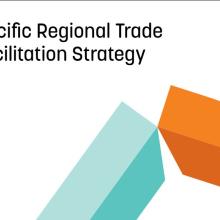
Accelerating Trade Facilitation and Logistics in The Pacific (World Bank-funded)
Leaders of the Pacific in 2024 demonstrated and expressed urgent need for support in the implementation of the Pacific Regional Trade Facilitation Strategy, and the region has requested funding for the Accelerating Trade Facilitation in the Pacific Project ‘The Project’ to be financed by the World Bank (WB). Each of the project components builds upon extensive WB technical assistance and operational experience in the areas of trade facilitation and maritime transport as well as regional coordination on trade facilitation.
The Project aims to reduce the time and cost required for cross-border trade in Participating Pacific Island Countries (PPICs). The reduction in time for cross-border trade will have a direct benefit on firms and households through lower costs and faster access to global and regional markets. The Project will be implemented in Fiji, Solomon Islands, Vanuatu, Tonga, Tuvalu, and Kiribati. Other Pacific countries may join the Project in the future.
The Ministry of Revenue and Customs (MORC) will be the Implementing Agency for The Project in Tonga, to deliver and target different segments of the trading process that firms encounter, reducing the costs they will face, including but not limited to upgrades to ASYCUDA and NSW implementation. These investments in digitizing cross-border trade will allow Customs and the border agencies to process shipments faster due to improved communication between relevant agencies and greater harmonization of operations, reducing the need for unnecessary inspections or hard-copy documents.
The Project has been rated by the WB as having Moderate environmental and social risks. The risks identified risks are expected to be temporary, site specific and reversible in nature; and can be mitigated through application of standard operating procedures and good international industry practices. Activities to be undertaken under the Project are required to comply with the WB Environmental and Social Framework (ESF) and will be supported by these disclosed Environment and Social Instruments to be implemented and complied with:
- Environmental & Social Commitment Plan (ESCP) - Click here to access
- Focused Environmental & Social Assessment (FESA) - Click here to access
- Stakeholder Engagement Framework (SEF) - Click here to access
The current disclosure aims to solicit feedback (verbal and/or written) from stakeholders on the presented ESCP, ESMF, SEF and LMF for the Project.
The ESCP sets out material measures and actions, any specific documents or plans, as well as the timing for each of these.
The FESA has been developed as the environmental and social risk management instrument for the Project as the Project will finance activities and investments across a diverse range of countries in PICs with varying environmental and social characteristics, each providing its own opportunities and risks.
The SEF provides the principles and requirements for the development of specific Stakeholder Engagement Plans for each country. It is designed to help Borrowers identify key aspects of stakeholder engagement relevant to each sub-project.
For feedback or queries on the above any time during project preparation and implementation you may contact:
Ministry of Revenue and Customs (MORC)
Chief Executive Officer for Revenue and Custom -Mr. Michael Cokanasiga (cst@revenue.gov.to)
PH- 7400550; web: revenue.gov.to
Ministry of Finance -CSU Environmental & Social Specialist – Ms Andrea Taliaúli (ataliauli24@gmail.com)
- Log in to post comments

